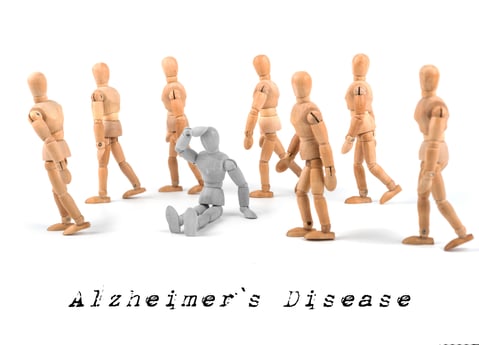
Recently I was reading an article about a new memory care community on LinkedIn and the photos were amazing. The community highlighted all their beautiful amenities and showed residents, suffering from dementia, smiling and laughing and engaged in activities reminiscent of an independent living community. The article gave the impression that Alzheimer’s and dementia are simply a challenge with an ADL (activity of daily living) and the individuals in the photos were no different than any other assisted living resident.
If your memory care resembles the photos described above, then most likely, your memory care unit is serving a population of early onset dementia residents. If your memory care does not look like the one described, that is because as Alzheimer’s Disease and dementia progress, the illnesses look entirely different.
I have been in the industry for eleven years now and have had the privilege of serving residents suffering from Alzheimer’s and dementia. It is true that a person suffering from this heinous illness, who is in the very early stages, can continue to live a fairly normal life; performing their ADL’s and enjoying many of the experience’s life has to offer. However, once the disease progresses, we begin to see behaviors and characteristics that make most people truly uncomfortable.
 Alzheimer’s is a debilitating disease that robs a person of their ability to not only remember who they are, who their loved ones are but also takes away their ability to perform the simplest of daily tasks. The illness steals from them their knowledge of the simplest of learned information such as, what is a fork and how it is used.
Alzheimer’s is a debilitating disease that robs a person of their ability to not only remember who they are, who their loved ones are but also takes away their ability to perform the simplest of daily tasks. The illness steals from them their knowledge of the simplest of learned information such as, what is a fork and how it is used.
As the knowledge is wiped away, so goes the ability of a person to behave and act in the manner befitting their age and life experience. They may act out in ways that are inappropriate; doing and/or saying things that can make a clear-thinking person think, “this isn’t my loved one, something else must be wrong with this person.” It is common for visitors to a memory care to question whether the individual acting in this peculiar fashion is being properly cared for, if this is how they are behaving.
The truth is Alzheimer’s Disease and dementia are ugly, unforgiving diseases. Like most mental health illnesses, they have a stigma and to speak about them is practically, taboo. The disease has no cure and therefore will progress. That progression is not comfortable and is painful to witness for someone you love and honor. Unfortunately, it is the reality.
 If you have a loved one who has been diagnosed with Alzheimer’s Disease or another form of dementia and you are looking for a community for the person you love, perhaps your focus needs to be on the dignity being shown to the people who are behaving erratically and strangely and less on the fact that the people are unable to stay focused on any given activity.
If you have a loved one who has been diagnosed with Alzheimer’s Disease or another form of dementia and you are looking for a community for the person you love, perhaps your focus needs to be on the dignity being shown to the people who are behaving erratically and strangely and less on the fact that the people are unable to stay focused on any given activity.
The man wearing the sock on his hand and pacing the floor is doing this because of the illness he is suffering. The fact that the staff has been trained to compliment his new article of clothing and not demean or remove his creation is what matters. The focus on the person or as we term it, “person-centered care” is all based on an approach around providing dignity to the person, despite the illness.
Accepting this reality will help you to locate the best care for the person you love. It is time to look past the pretty pictures, see the illness for what it is and recognize when a community is providing genuine care and dignity.
At Osprey Lodge, in Tavares, Florida, this is what your loved one can expect.
-----------------------------------------
ABOUT THE AUTHOR
 Michael Hurwitz is an Executive Director at Osprey Lodge, a charming and beautiful Florida Lodge with modern amenities similar to a cruise ship. With diverse experience in Retirement Living, Assisted Living and Memory Care, he has been successfully supporting ten communities in four states as the Regional Director of Sales & Marketing.
Michael Hurwitz is an Executive Director at Osprey Lodge, a charming and beautiful Florida Lodge with modern amenities similar to a cruise ship. With diverse experience in Retirement Living, Assisted Living and Memory Care, he has been successfully supporting ten communities in four states as the Regional Director of Sales & Marketing.











Comments